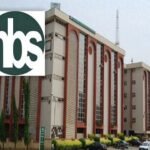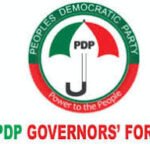A Fitch Solutions Country Risk and Industry Research report released on Thursday projected victory for Presidential Candidate of the Peoples Democratic Party, Bola Tinubu but added that it would spark social instability.
The report projected that the victory of Tinubu’will lead to protests and social instability in the country because of the Muslim-Muslim ticket and the expectations of the followers of Labour Party’s candidate, Peter Obi, that will be dashed.
The report predicted further that “Protests and social discontent are likely to ramp up in the aftermath of a Tinubu win since this would end the recent trend of the presidency alternating between Muslims and Christians.”
The report partly reads: “Since Nigeria’s return to democracy in 1999, there has been an informal agreement that resulted in the presidency alternating between Northern and Southern states, as well as between Christians and Muslims. A win for Tinubu would break with this unwritten tradition and likely fuel sentiment of perceived marginalisation among Christians.
“In addition, Obi’s supporters – mostly young, urban voters – are likely to question the fairness of the electoral process, especially after recent polls have predicted a win for Obi. These dynamics are likely to engender political unrest following the February vote. “As a result, we have revised down the Social Stability component of our proprietary Short-Term Political Risk Index (STPRI) from 30.0 to 25.0 previously (scores out of 100; lower score implies higher risk). This brings Nigeria’s overall STPRI score from 46.3 to 45.0. Social Stability Remains.”
The research stated that though previous polls had put Obi ahead of other rivals, the fact that it was conducted online and going by World Bank records, only 36 per cent of Nigerians use the online space and access which limits its spread among those to decide the winner of the election, the surveys were therefore not widespread and therefore unreliable.
“Surveys showing that Obi is ahead of his opponents, Bola Tinubu (APC) and Atiku Abubakar (PDP), were mostly based on responses gathered online. Since only 36.0% of Nigerians use the Internet (World Bank, 2020), we believe that these results are skewed towards urban, affluent voters who are most likely to support Obi. We also highlight that these polls suggest that a large share of voters remain undecided,” the research said.






